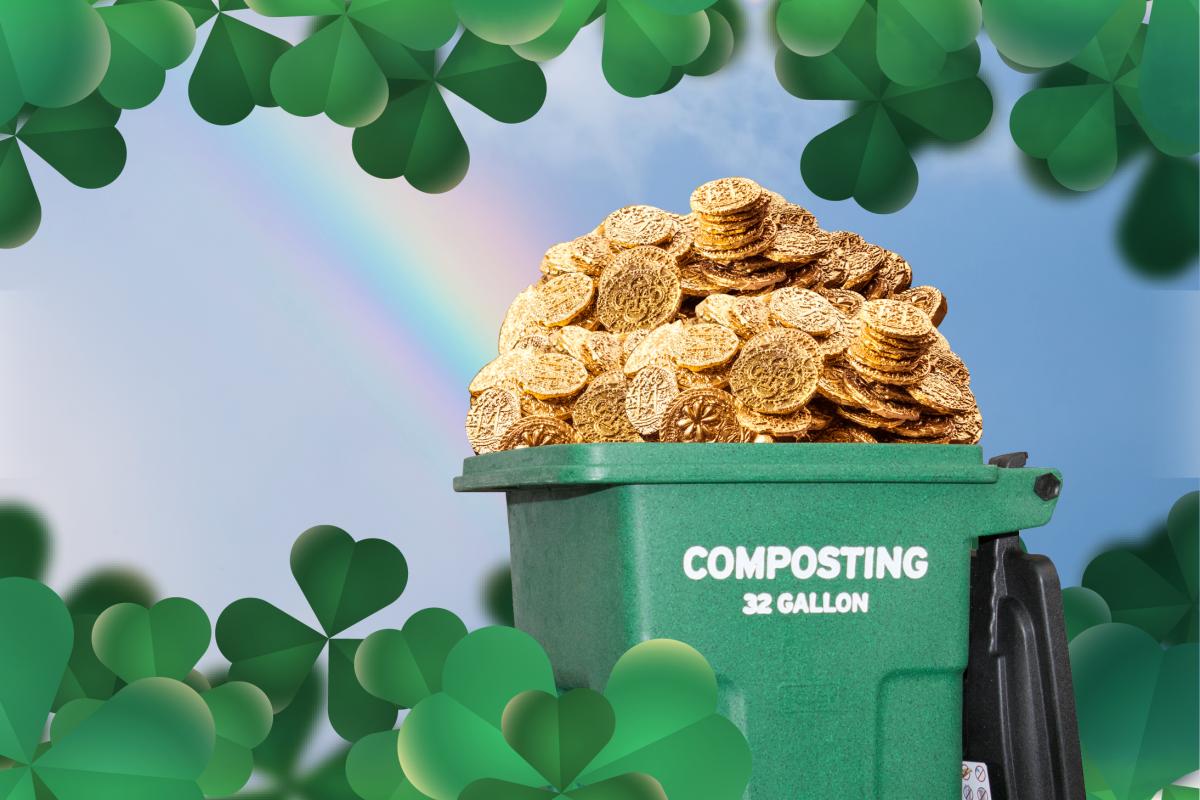Gold in your green cart (and in your wallet)

By: Jennifer Denton
The Curbside Composting program can change the way we think about household “waste.”
Composted material is like gold, and we want to help you find more of it.
Confusion about what goes in the green composting cart is “natural.” Just remember, “If it grows, it goes,” meaning any material that began its life as an organic substance can go in the composting cart. Yard waste makes up the bulk of the materials collected, but don’t forget about your food scraps. Yes, even those moldy leftovers in the back corner of your refrigerator (minus the container, please). Using a BPI-certified compostable bag makes collecting food waste in the kitchen a breeze, especially if you freeze it and put the bags in the cart the night before your collection day. No bugs attracted, no smell to cover up, and most importantly it keeps your green cart clean. Don’t forget to toss in food-soiled paper like napkins, paper towels and even pizza boxes. Don’t worry if your cart isn’t full each week, still set it out. By doing so, you may be encouraging your neighbors to use the service if they aren’t. Check out our composting guide to learn more about curbside composting.
But why are we doing this? What is the benefit of this program?
A study showed that only 10 percent of your waste is actual trash; the rest is either recyclable (44 percent), compostable (46 percent), or perhaps even reusable. By composting and recycling, you could save up to hundreds of dollars per year on your utility bill if you currently have the largest cart. How? It’s simple; the more you compost and recycle, the smaller the trash can you will need. If you’re recycling and composting correctly, you could downsize your trash cart and save money! Environmentally, by composting, you can help reduce the methane gas produced by organic materials in the landfill. Your choice to compost every week does make a difference.
There are other ways to compost too
- If you don’t have curbside composting at home, and even if you do, you can take one of our free classes for backyard composting and chicken keeping.
- Texas Farmers Markets offer compost drop off at their locations each weekend.
- Check with the Compost Coalition to find a local community garden that will accept your compostable material.
Don’t forget to search the “What Do I Do With…?” tool on our website to find the most zero waste solutions for items you no longer want.

